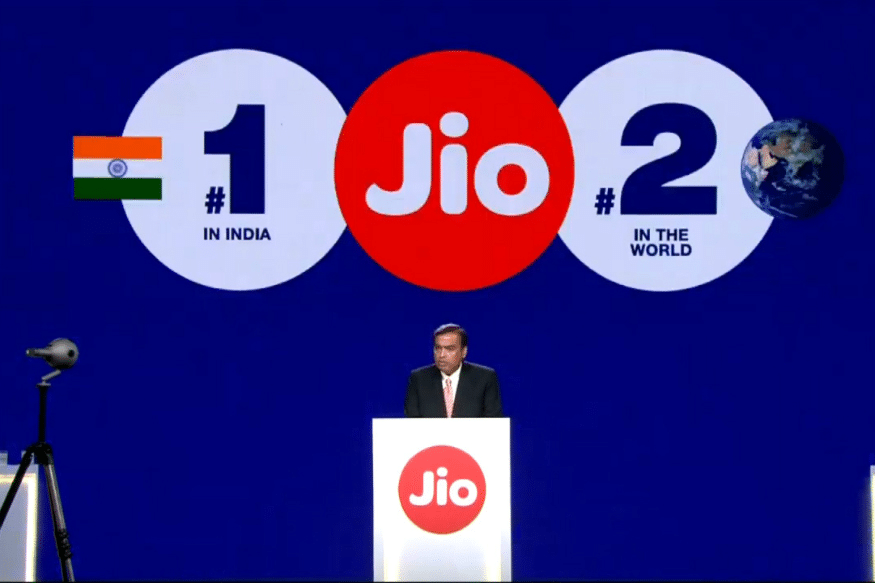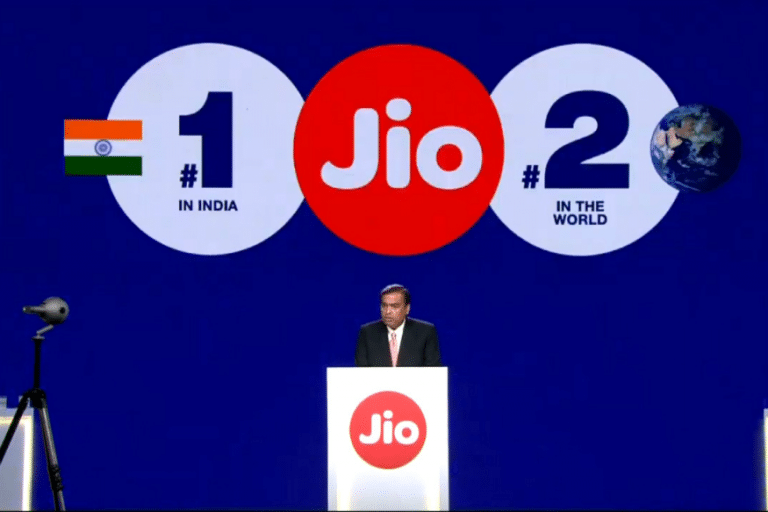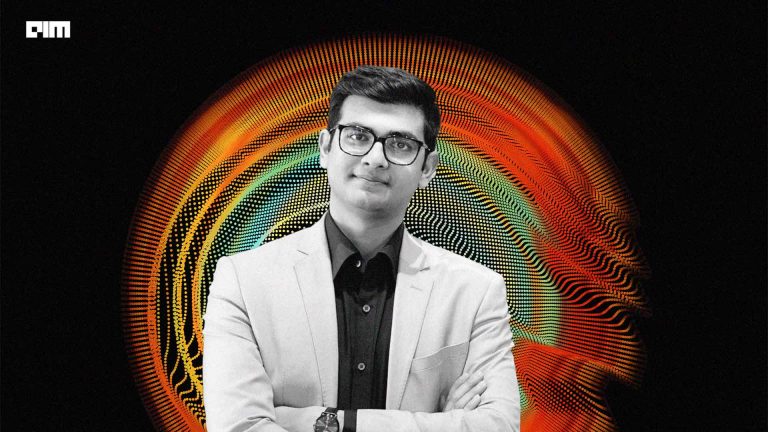Reliance Jio recently announced a host of digital services, including the country’s largest blockchain network, an IoT platform, and a CDN and edge computing platform. With the announcements, Jio has indicated that it is going to herald a new era of communication and digitalisation, which is not just restricted to telecom, but encompasses everything which touches digital, both for end consumers as well as businesses.
Jio has already played a prominent role in boosting the country’s digital initiative by providing 340 million Indian subscribers cheap and fast internet services, which is an important utility for any fast-developing economy. In the past, Jio mobile services gave a huge push to services in the retail and finance space, and so players like Paytm, Flipkart and thousands of others directly benefited. Had it not been for Jio, many of the digital businesses might not worked as well as they have in the last few years, as the company gave a platform for those businesses to directly connect with customers, derive valuable insights and create new business models.
Now with the recent announcements, one thing has become very clear— Reliance Jio plans to focus on its business of creating digital solutions. The company said has about 6000 software engineers, and is targeting to hire many more to accomplish its digital initiatives. In this direction, it has also invested in 14 startups to help drive different parts of the newly announced digital infrastructure. “Digital Platforms will be Jio’s contribution to transform India into an AI-first economy,” said Mukesh Ambani during his speech at the company’s 42nd annual general meeting.
Enterprise-Grade Solutions For A Fraction Of The Cost
The fast-rising payment and e-commerce space depends directly on the shoulders of telecom players such as Jio to help them with connectivity. Now, Jio wants to expand the digital benefits and make them more inclusive for micro, small and medium sized businesses as well. The company wants to help millions of organisations by connecting them with Jio’s digital infrastructure. The company said SMEs will be given cheap digital services, from compute to storage, to connectivity. The integration of all industries with the Jio platform, as outlined in Mukesh Ambani’s vision, will ease the inefficient processes across them.
While businesses today pay out ₹15,000 ₹20,000 for a bundle of connectivity, productivity and automation tolls, Reliance said it will provide all of that for just 1/10th of a cost, around ₹1,500. The announcement could potentially be a boon for micro enterprises struggling to make it in the digital era. The level of value it can add to the economy will be unprecedented, believe many. Businesses will have access to unlimited enterprise-grade voice and data services, video conferencing, security solutions, marketing and sales solutions which are at par with larger enterprises. “Medium and large enterprises spend ₹3-5 lakh annually for solutions, for which we have custom-designed plans,” Ambani said.
Why Does Reliance Want A Blockchain Network?
Jio announced it is also creating the country’s largest blockchain network, comprising of thousands of nodes spread across. But, why does the company want with distributed ledger technology? To protect the data and privacy, Ambani said. According to Ambani, the blockchain network will serve to give data provenance as well protect it from tampering, duplication, and illegal use of corporate or private data. Of course, experts have said in the past that if Aadhaar data had been managed using a blockchain, we wouldn’t have seen breaches. The blockchain network likewise will make processes efficient as data could be instantly matched between the given parties, without much hassle. The blockchain according to Jio will touch all parts of their infrastructure, where transactions are involved. “We want a brand new model for data privacy so Indian data is owned and controlled by Indian people and not by corporates, especially global corporations. The blockchain network will be vital for India, in modernising supply chains and agriculture,” Ambani added.
IoT: A ₹20,000 Crore Opportunity For Reliance Jio
Reliance Jio sees a ₹20,000 crore opportunity in the narrowband IoT market and wants to create a pan-India network for connected devices. According to the company, 2 billion IoT devices will be installed in India in the next 2 years and Jio wants to have half the share in those installations. It is to be noted that other telecom players like Airtel are also keenly looking at IoT services. Airtel recently announced it was talking with car manufacturers to create connected vehicle solutions based on IoT. The smart connected devices based on IoT will generate create massive amounts of data through sensors, which can be analysed for making smart decisions. Insights from that data will certainly help Jio in its future direction in capturing the connectivity and digital solutions market further. “Unique custom insights can be leveraged to grow this into a much bigger business in the next 5 years,” Ambani stated.
JioFiber: An Important Piece Of The Puzzle
How can all this be achieved with just mobile services? India still needs ubiquitous WiFi, across homes and businesses so the dream of Digital India can be achieved. Jio understands that well. Its Fiber-to-home (FTH) service is soon going to provide affordable yet ultra-fast WiFi to the citizens. With speeds between 100 Mbps to 1 Gbps, it will make it even easier for a large part of the population to connect to the digital infrastructure, thereby enhancing India’s broadband penetration, which stands today at 10 percent compared to China, where it is 70%. Reliance says it will provide Reliance Fibre services to home users at 1/10th the global rates with subscription starting at 700 Rs ($10) per month. Similar to Jio’s mobile services, it is predicted that cheaper rates for high-speed broadband will ensure Reliance Jio gets to amass hundreds of millions of users. Nation-wide broadband is an important part of the strategy as without the connectivity, how will connected devices market flourish?
Jio Also Bets On Edge Computing For Seamless Connectivity
To provide seamless connectivity in digital services such as streaming content, Jio will create its edge computing and content distribution network with over 1000 nodes present across the nation. Edge computing is another crucial technology that a lot of services rely upon, particularly those that consume lots of data. According to research, more than 30% of organisations’ cloud deployments in India alone will include edge computing to solve bandwidth issues as well as reduce latency to process data in real-time. Be it streaming services, smart assistants, AR/VR or data emanating from billions of IoT devices, edge will make it easy for Jio to process all the data interactions instantly. “With the help of edge computing and CDN with tens of thousands of nodes, favourite content and apps will be nearer to you, so you can enjoy them, download them in real-time,” said Ambani. Jio also said it will create applications using natural language processing and speech recognition for Indian languages, served at the edge. Edge computing will serve well with Jio’s launch of 5G, which the company stated will be ready soon.
Digital Platforms Will Boost Reliance’s Strong Retail Presence
One of the key focus areas for Reliance is retail. This is one area besides telecom where Reliance has a large presence, and so modernising its retail part and leveraging its digital platform can create tremendous value. Here, instead of creating value for other large e-commerce businesses like Amazon and Flipkart, Reliance signalled that it is keen to make his retail business flourish in the country via his digital initiatives. Reliance wants to do this in multiple ways. Ambani said he wants to make the company’s distribution chains more efficient as well as integrate small and medium-sized Indian merchants on the digital platform. This will be done using connected Point of Sale devices, which the merchants will be able to use for inventory management, customer relationship management, banking and finance, etc. “We want to modernise and integrate the smallest Tirana shops to help them become transformative. We want to create an end-trend digital distribution stack in the retail sector. For this, we are deploying blockchain, IoT, AI across India and removing inefficiencies and the value destructions,” announced Ambani.
Where Does Microsoft Fit In?
With so much connectivity to be created, Reliance Jio needs to set up its cloud network comprising of multiple data centres across the nation. For the company’s cloud network, it will leverage Microsoft for its expertise. Using Microsoft Azure and Microsoft Cognitive Services, Jio plans to create seamless computing, storage as well as create AI models using the massive amounts of data its platforms will create. Jio said it will set up data centres itself and Microsoft will bring in Azure Cloud for a bunch of technology solutions relating to AI, machine learning, data analytics, blockchain, IoT and edge. The partnership will create well-integrated solutions, spanning connectivity, data storage and real-time computing, deployed at the edge of the network. “Microsoft will bring Azure cognitive services to more devices, creating new breakthroughs in intelligent experience with the support of major India languages,” Satya Nadella said.
Overview
With a slew of announcements, Reliance Jio has given itself even more headway when it comes to competing with other telecom players like Airtel and Vodafone, which are already under the water. Mukesh Ambani has also demonstrated that Jio is and will remain a core part of India’s digital infrastructure. With a refreshed business model focused on digital services, broadband and connected devices, the company has a long way to go. It also seems with a strategic focus on software and connected business solutions, Jio will strengthen Reliance’s businesses in other sectors, including finance, agriculture, healthcare, retail and entertainment. It will be interesting to see how Jio brings about the solutions it has promised using Microsoft’s and its own capabilities.
































